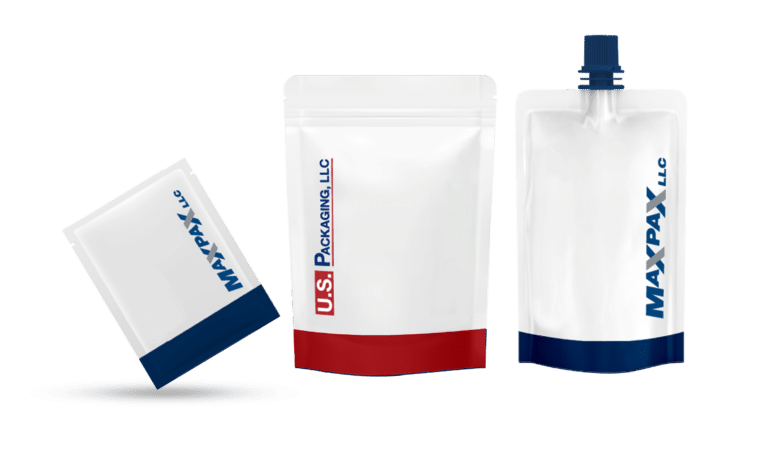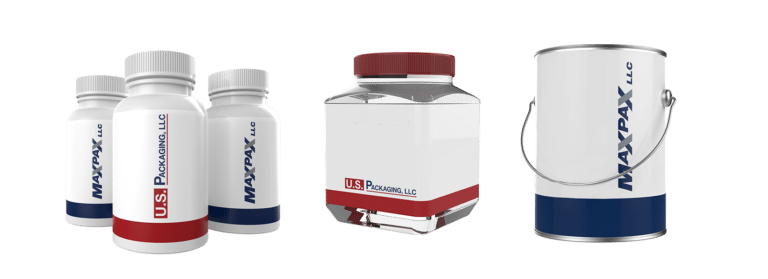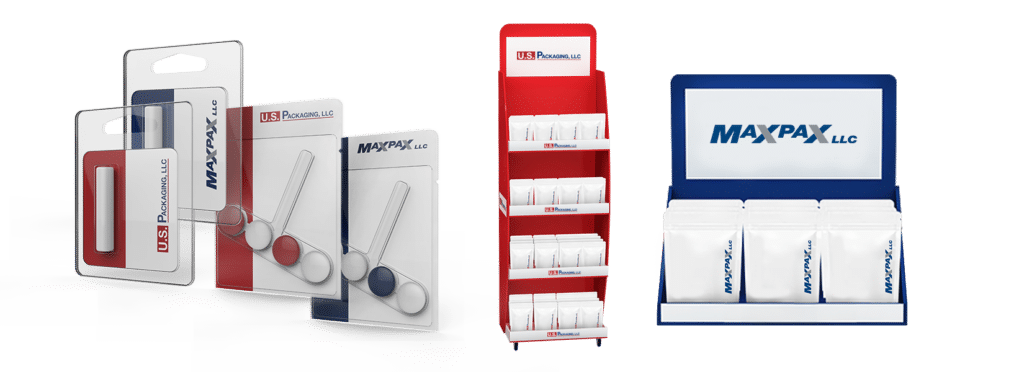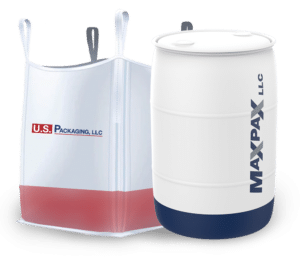
Choosing the proper packaging is more than just a practical consideration. It’s a strategic decision that can significantly impact the success of your product in the market. Whether launching a new product or reevaluating your current packaging, understanding the various options available and selecting the one that best fits your product is essential.
The experts at MaxUS Operations are here to help you compare some of the most common packaging options to determine which custom packaging solution suits your needs.
1. Rigid Packaging
Rigid packaging refers to packaging that holds its shape regardless of external forces. Examples include boxes, bottles, jars, and cans. This type of packaging is highly durable, offering excellent protection for your product during transportation and storage. It’s often used for products like beverages, cosmetics, and pharmaceuticals that require strong, protective packaging.
Pros:
- Provides superior protection for fragile products
- Enhances brand perception with premium materials (e.g., glass, sturdy cardboard)
Excellent for long-term shelf life
Cons:
- Typically more expensive due to material and production costs
- Heavier items, which can increase shipping costs
Rigid packaging is an excellent choice when durability and brand aesthetics are top priorities.
2. Flexible Packaging
Flexible packaging includes bags, pouches, and shrink wraps, which mold around the product inside. It’s commonly used for food, personal care, and pharmaceutical products. Flexible packaging offers a cost-effective and lightweight option compared to rigid packaging while providing adequate protection and convenience.
Pros:
- Lower production and shipping costs due to lightweight materials
- Highly customizable in shape and size
- Often more eco-friendly, with recyclable or biodegradable options available
Cons:
- May not provide as much protection for fragile products as rigid packaging
Not suitable for products that need to maintain their shape, like certain electronics or luxury items
Flexible packaging is a great custom packaging solution when cost savings and versatility are essential and the product doesn’t require heavy-duty protection.
3. Custom Packaging Solutions
Custom packaging solutions are specifically designed to meet the unique needs of your product. This may involve designing packaging with specific shapes, colors, and materials to create a distinctive look that aligns with your brand identity. Custom packaging can be rigid or flexible, depending on the needs of the product.
Pros:
- Tailored to your product, ensuring optimal fit and protection
- Allows for unique branding opportunities, helping your product stand out
- Can enhance customer experience and perception of quality
Cons:
- Can be more expensive to design and produce
- May require longer lead times for manufacturing
Custom packaging solutions are ideal for businesses that want to differentiate themselves in the marketplace, create a unique consumer experience, and ensure their product’s protection.
4. Sustainable Packaging
As consumers become more environmentally conscious, many businesses opt for sustainable packaging options. These may include recycled paper, biodegradable plastics, or reusable containers. Sustainable packaging can be used across various product categories, aligning with the growing demand for eco-friendly products.
Pros:
- Aligns with consumer preferences for sustainability
- Reduces environmental impact, which can enhance brand image
- Often eligible for green certifications or awards
Cons:
- May have higher upfront costs due to sourcing sustainable materials
- Limited availability of certain eco-friendly materials
Sustainable packaging is an excellent choice for companies that prioritize environmental responsibility and want to appeal to eco-conscious consumers.
5. Packaging Service Providers
When selecting the best packaging for your product, working with a professional packaging service provider can make the process easier. Packaging experts can guide you in choosing the right materials, design, and functionality for your product, while also helping you stay within budget and timelines. They can also help streamline the production process, ensuring your packaging meets industry standards and is cost-efficient.
Choosing the right packaging option requires balancing multiple factors, including product protection, cost, sustainability, and branding. Whether you’re looking for a custom packaging solution, a flexible option, or sustainable materials, understanding the pros and cons of each packaging type is key to making an informed decision. Partnering with a packaging service provider can help you navigate these options and create a packaging strategy that best suits your product and business goals.






